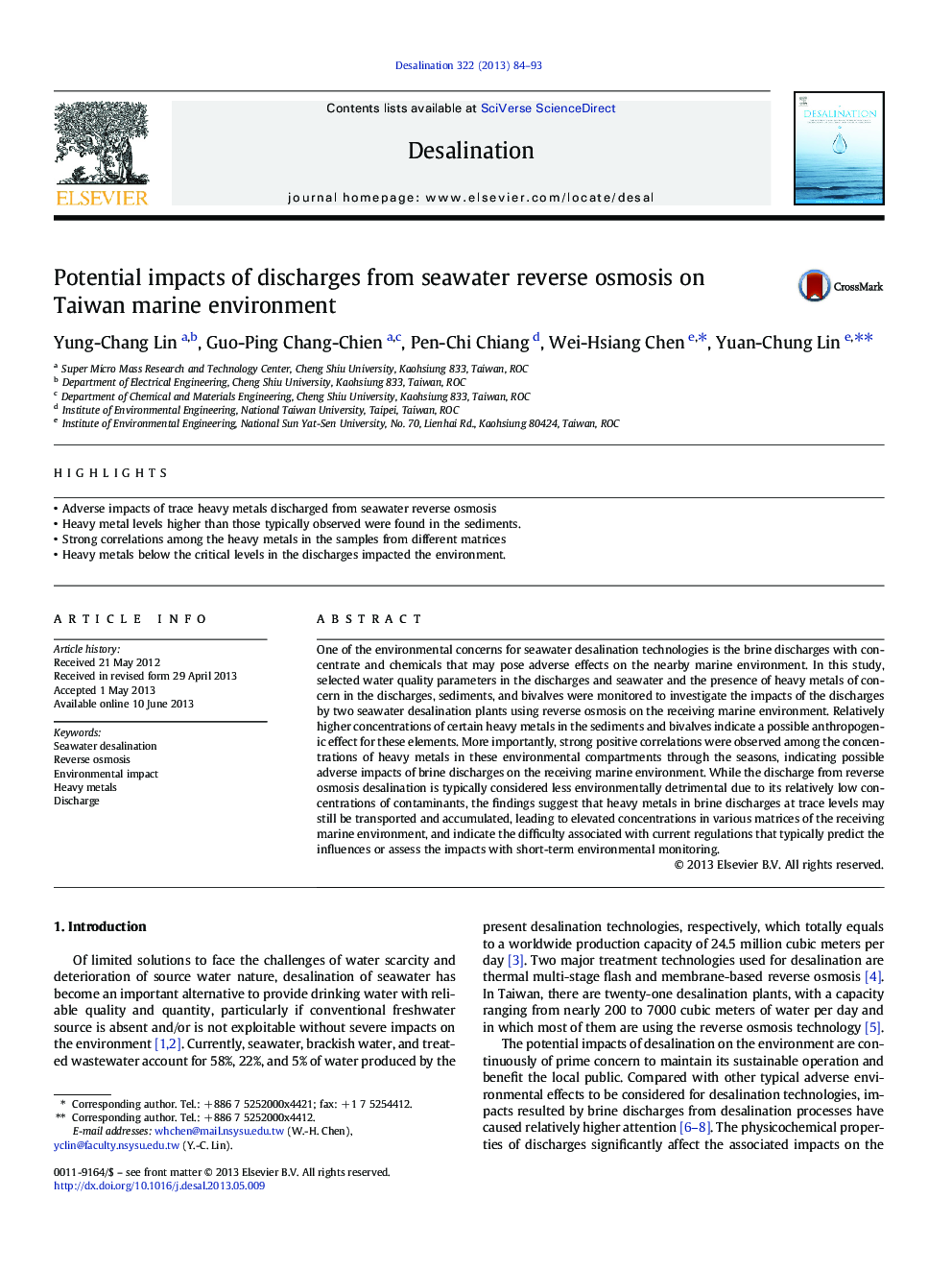| Article ID | Journal | Published Year | Pages | File Type |
|---|---|---|---|---|
| 623994 | Desalination | 2013 | 10 Pages |
Abstract
One of the environmental concerns for seawater desalination technologies is the brine discharges with concentrate and chemicals that may pose adverse effects on the nearby marine environment. In this study, selected water quality parameters in the discharges and seawater and the presence of heavy metals of concern in the discharges, sediments, and bivalves were monitored to investigate the impacts of the discharges by two seawater desalination plants using reverse osmosis on the receiving marine environment. Relatively higher concentrations of certain heavy metals in the sediments and bivalves indicate a possible anthropogenic effect for these elements. More importantly, strong positive correlations were observed among the concentrations of heavy metals in these environmental compartments through the seasons, indicating possible adverse impacts of brine discharges on the receiving marine environment. While the discharge from reverse osmosis desalination is typically considered less environmentally detrimental due to its relatively low concentrations of contaminants, the findings suggest that heavy metals in brine discharges at trace levels may still be transported and accumulated, leading to elevated concentrations in various matrices of the receiving marine environment, and indicate the difficulty associated with current regulations that typically predict the influences or assess the impacts with short-term environmental monitoring.
Related Topics
Physical Sciences and Engineering
Chemical Engineering
Filtration and Separation
Authors
Yung-Chang Lin, Guo-Ping Chang-Chien, Pen-Chi Chiang, Wei-Hsiang Chen, Yuan-Chung Lin,
